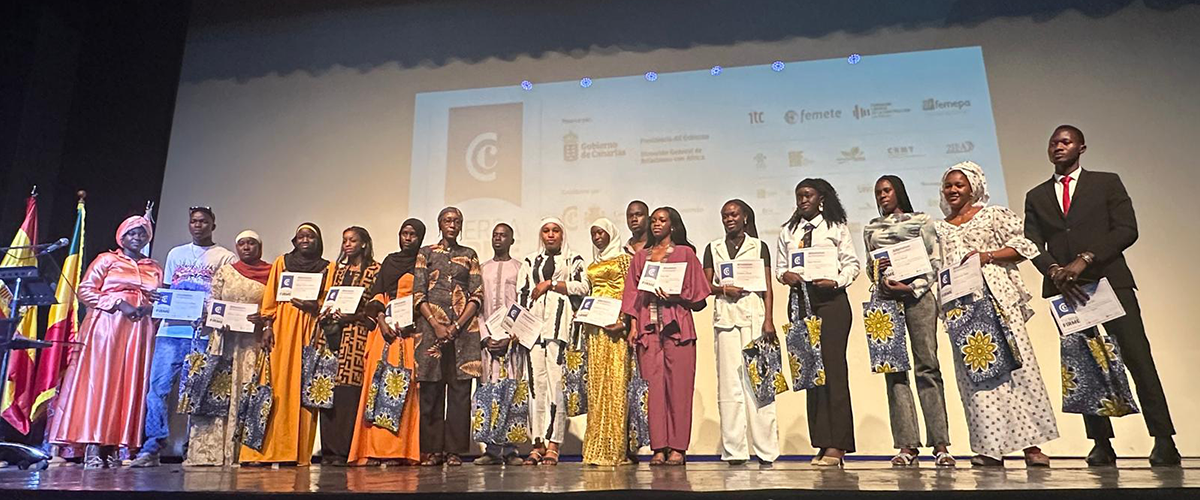Tierra Firme (Mainland)

Luis Padilla
Director General of Relations with Africa. Gobierno de Canarias. Spain.
The Canary Islands constitute the closest Spanish and European region to the African Atlantic coast. This privileged geographical position has historically determined the orientation of its economic relations and cooperation with the neighboring continent.
This is why the Canary Islands Government is the only Spanish region with a department specifically dedicated to promoting and coordinating government action with African countries through the Directorate General for Relations with Africa, which reports to the Presidency of the Canary Islands Government.
Within the framework of the European policy of support for outermost regions, the Canary Islands are leading the territorial cooperation program (MAC INTERREG) which, for the period 2021-2027, together with the Azores and Madeira, is promoting cooperation with seven African countries - Mauritania, Senegal, Gambia, Cape Verde, Sao Tome and Principe, Ghana and Ivory Coast - counting, in this fourth edition, with funding of almost 200 million euros.
Through public tenders, the program promotes projects in key areas of shared interest, such as desalination, renewable energy, land-use planning, the blue economy, sustainable tourism, and environmental protection.
The INTERREG MAC has established itself as the primary cooperation tool with our neighboring countries, thanks to its strong knowledge transfer component and institutional strengthening. Its objectives align with one of the strategic goals of our collaboration with countries in our region: to contribute, starting in the Canary Islands, to the training and empowerment of young people and to the development of the productive fabric of the African continent.
In line with this objective and in response to the migration challenge facing the archipelago, the Canary Islands Government launched TIERRA FIRME, an initiative aimed at creating employment opportunities for young people in their countries of origin. This program is supported by collaboration with established companies there and offers a work-study training model that combines theoretical instruction with on-the-job training in the country.
The pilot program was set up with the Spanish Chamber of Commerce in Senegal, which brings together more than sixty Spanish companies established in the country.
In the first phase, the skills and professional profiles that companies wanted for their development were identified. Based on this assessment, the participation of vocational training centers in Senegal was coordinated to complement the educational offering with the participation of professors from the Canary Islands in agriculture and the textile sector.
The participating companies committed to offering internships to these young people, training that was also funded by the Canary Islands government. In total, twenty-four young people completed three months of theoretical training, followed by three months of practical training.
The pilot program achieved very positive results in the tourism and textile sectors, with all participants who completed the program now working in formal businesses. In the agricultural sector, employment rates are more variable, as they depend on the specific production and harvest cycles of each crop.
During the second edition we trained 261 young people from Senegal, among those who completed the plumbing training 36% work in formal employment, among those who studied electricity 78% work, among those who completed the electricity training, 78% work in a formal company.
Following the success of the pilot program in Senegal and in parallel with the launch of the second edition in Senegal, we extended this program to Mauritania and recently to Cape Verde, also relying on the Canary Islands vocational training structures (FEMEPA, FEMETE, FLC, ITC, Agroislas, among others) and in close collaboration with employers' organizations and, in particular, with companies, which are the main job creators.
In Mauritania, the program has expanded into the fields of steel fabrication and construction, with theoretical training provided at the Nouakchott School of Technical and Vocational Training by instructors from the Canary Islands. Following this training, the young people completed a two-month internship in Mauritanian companies. Of the 40 young people trained, 38% found employment, and some have the short-term goal of starting their own businesses.
In Cape Verde, the TIERRA FIRME project in the tourism sector involves 30 young people. The job placement prospects are very favorable, as the program has developed in partnership with two Spanish tourism companies that are currently expanding in the archipelago.
We will soon be launching a third edition in Senegal and a second in Mauritania. We also anticipate being able to launch the program in Gambia and Morocco, with the financial support of AECID.
Our desire with TIERRA FIRME is that other regions can replicate this public-private methodology, which has proven effective in generating employment among young people, offering an alternative to irregular migration and working with local authorities to generate quality employment.
In this new phase, we have also incorporated a training component and trainers in the Canary Islands, with the aim of promoting a rewarding exchange of experiences and knowledge between African and Canary Island professionals, and we are working to integrate a module on entrepreneurship, which is in high demand among young Africans.
In this way, the Canary Islands take advantage of its geostrategic position to consolidate itself as a place for training, knowledge, research and cooperation with neighboring countries, strengthening ties between Africa and Europe through partnership and collaboration.










































































